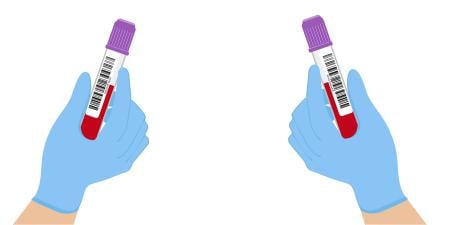One ethical dilemma that is still fiercely debated in assisted reproduction is whether children born by gamete (egg or sperm) donation should be allowed to have information about the gamete donor [1-3]. For the purposes of this article I shall concentrate on whether the donor offspring (whom I will refer to simply as "offspring") have or do not have a right to gain access to identifying information about their gamete donors. The debate over whether to allow offspring to have nonidentifying information has been less heated, with many commentators agreeing that it should be made available [4].
Discussion about a child's right to have identifying information about his or her gamete donor begins with the prior question of whether offspring should be told about the means of their conception. If children are not told, the right to have access to information about the donor is effectively useless to them [5]. In most jurisdictions there is no legal expectation of disclosure-means of conception is not stated on the birth certificate, and no professional body has any duties or obligations to inform individuals that they were conceived with donor gametes [6]. Thus, the argument that offspring have a right to be told, generally defends a moral right to know rather than a legal right [7].
Children's Right to Know
The case that offspring have a right to the truth about their conception and origins has developed over many years. John Triseliotis has argued that "truth is always better than deception. No one has the right to erase part of yourself, even if it is only a minor part" [8]. Family therapy practitioners claim that openness and honesty are preferable and that basing family life on deception and secrecy can cause stress and anxiety within the family [9,10]. Mary Warnock insists that there is an ethical imperative to tell, even while saying,
I cannot argue that children who are told of their origins, if they are AID [artificial insemination donor] children, are necessarily happier, or better off in any way that can be estimated. But I do believe that if they are not told they are being wrongly treated [11].
The main reason for telling the child how he or she was conceived is often so that he or she can then seek information about the donor. It should be noted that the volume of disclosed information depends on the policies of the clinic and national legislation [4].
Many societies are now placing greater emphasis on children's rights than was common in the past. The United Nations' Convention on the Rights of the Child was, for example, the most rapidly signed international convention on human rights [12]. One of the rights the document views as fundamental is the right to know one's parents (Article Seven). This has been interpreted as a child's right to know the identity of his or her gamete donor [13], but the justification for such rights is clearly contentious-most significantly because the conventions on child and human rights were not written with gamete donation in mind. The Council of Europe has stated that, "It is not possible-at the present moment-to draw decisive arguments from the Convention for the Protection of Human Rights and Fundamental Freedoms either in favour or against the anonymity of donors" [14].
Nevertheless, such a rights-based argument has been used by various legislatures to justify policies of nonanonymous gamete donation [1,15]. The most common reason given for why knowledge of one's genetic origins is thought to be a right is that it is deemed essential for a person's well-being. Alexina McWhinnie, for example, has argued that donor offspring can suffer from "genealogical bewilderment," meaning that they can be curious about the physical characteristics, family aptitudes, and medical history of their gamete donors [16].
Much of the evidence about harm caused by not knowing one's origins is drawn from the literature on adoption, and it can be questioned whether this is an accurate comparison [17]. The position of donor offspring within the family differs from that of adoptive children-they have not been abandoned by their genetic parents, and they are often biologically related to one member of the couple. As Susan Golombok says, "Genetic unrelatedness has a different meaning for children conceived by gamete donation than for children in adoptive families or in stepfamilies" [18]. Still, it can be assumed that donor offspring have just as much interest in knowing about their origins as adoptees have. The absence of information about their genetic parent(s), including the lack of knowledge of their identity, can represent a missing part of their lives [19]. While the analogy between donor offspring and adoptees is not a perfect fit, it appears that these two groups often have similar concerns about their genetic identity.
Parents' and Donors' Right to Privacy
A final question to consider is whether the offspring's right to identifying information negatively affects the privacy rights of the parents and the donor. If the duty to tell offspring how they were conceived is left exclusively to the parents, then it can be argued that it is the parent's right to privacy, rather than the child's right to know, that is considered paramount [6,20]. Taking the decision to tell out of the parents' hands raises parental rights issues of its own [7,21]. For instance, putting "by donation" on an offspring's birth certificate could be argued to be an infringement of the offspring's privacy. Similarly, the rights of the donor could be threatened by a policy that enforced nonanonymous gamete donation. In a robust system of gamete donation, donors should give fully informed consent to the donation and be aware of the possibility that they could, in future, be identified by any offspring. If they do not wish to contribute nonanonymously, it is their prerogative to decline donation.
One major problem with a programme of nonanonymous gamete donation is that it could adversely affect the numbers of gamete donors, an argument frequently advanced against establishing such a policy [22]. There are two counterarguments, however, to this contention. In 2005, legislation in the UK required donors to agree to disclosure of their identity to offspring when offspring reach age 18. A subsequent study of prior UK donors' views on how the removal of anonymity would affect their future donation did not firmly establish that the new policy would cause a decline in gamete donation. And it is uncertain that the decline in donations in countries that have recently removed gamete donor anonymity (i.e., countries of the UK, New Zealand, and the Netherlands ) is solely due to this policy change [23,24]. Second, if nonanonymous donation is the morally right way of organising gamete donation, then the low donor numbers is the price that has to be paid for a morally sound system.
Conclusion
Whether offspring have a right to know the identity of their gamete donors is a hotly debated issue. Clearly, the notion of disclosing identifying information about gamete donors is based on an assumption of the importance of biological origins. Other arguments in favour of offspring having that information are grounded in concepts of parity and nondiscrimination. Donor offspring should not be the only group of people legally prevented from finding out identifying information about their biological parentage.
References
- Frith L. Gamete donation and anonymity: the ethical and legal debate. Hum Reprod. 2001;16(5):818-824.
- Hampton T. Anonymity of gamete donations debated. JAMA. 2005;294(21):2681-2683.
-
Daniels K. Donor gametes: anonymous or identified? Best Pract Res Clin Obstet Gynaecol. 2007;21(1):113-128.
-
Ethics Committee of the American Society of Reproductive Medicine. Informing offspring of their conception by gamete donation. Fertil Steril. 2004;82(2):527-531.
-
This information could be held by the clinic that carried out the treatment or by a national body such as the UK 's Human Fertilisation and Embryology Authority.
- van den Akker O. A review of family donor constructs: current research and future directions. Hum Reprod Update. 2006;12(2):91-101.
- Frith L. Beneath the rhetoric: the role of rights in the practice of non-anonymous gamete donation. Bioethics. 2001;15(5-6):473-484.
-
Triseliotis J. Identity and genealogy. In: Bruce N, Mitchell A, Priestley K, eds. Truth and the Child: A Contribution to the Debate on the Warnock Report. Edinburgh, UK: Family Care; 1988:22.
- Turner AJ, Coyle A. What does it mean to be a donor offspring? The identity experiences of adults conceived by donor insemination and the implications for counselling and therapy. Hum Reprod. 2000;15(9):2041-2051.
-
Snowden R. The Gift of a Child: A Guide to Donor Insemination. Exeter, England: University of Exeter Press; 1993.
- Warnock M. The good of the child. Bioethics. 1987;1(2):141-155.
-
Freeman M. The new birth right? Identity and the child of the reproduction revolution. The International Journal of Children's Rights. 1996;4:273-297.
- Blyth E, Farrand A. Anonymity in donor-assisted conception and the UN Convention on the Rights of the Child. International Journal of Children's Rights. 2004;12(2):89-104.
-
Council of Europe. Human Artificial Reproduction. Strasbourg, Germany; 1989.
-
Blyth E. Information on genetic origins information in donor-assisted conception: is knowing who you are a human rights issue? Human Fertil (Camb). 2002;5(4):185-192.
- McWhinnie A. Gamete donation and anonymity. Hum Reprod. 2001;16(5):807-817.
- Shenfield F. Filiation in assisted reproduction: potential conflicts and legal implications. Hum Reprod. 1994;9(7):1348-1354.
- Golombok S. New families, old values: considering the welfare of the child. Hum Reprod. 1998;13(9):2342-2347.
-
See for example, Scheib J, Riordan M, Rubin S. Adolescents with open-identity sperm donors: reports from 12-17 year olds. Hum Reprod. 2005;20(1):239-252; Vanfraussen K, Ponjaert-Kristoffersen I, Brewaeys A. Why do children want to know more about the donor? The experience of youngsters raised in lesbian families. J Psychosom Obstet Gynecol. 2003;24(1):31-38; and Turner AJ, Coyle A, 2041-2051.
-
Walker I, Broderick P. The psychology of assisted reproduction, or psychology assisting its reproduction? Aust Psychol. 1999;34(1):38-44.
- Baines JA. Gamete donors and mistaken identities: the importance of genetic awareness and proposals favoring donor identity disclosure for children born from gamete donations in the United States. Family Court Review. 2007;45(1):116-132.
- Braude P, Johnson MH, Aitken RJ. Human fertilisation and embryology bill goes to report stage. BMJ. 1990;300(6737):1410-1412.
-
Frith L, Blyth E, Farrand A. UK gamete donors' reflections on the removal of anonymity: implications for recruitment. Hum Reprod. 2007;22(6):1675-1680.
-
Blyth E, Frith L. The UK gamete donor crisis-a critical analysis. Submitted for publication.



